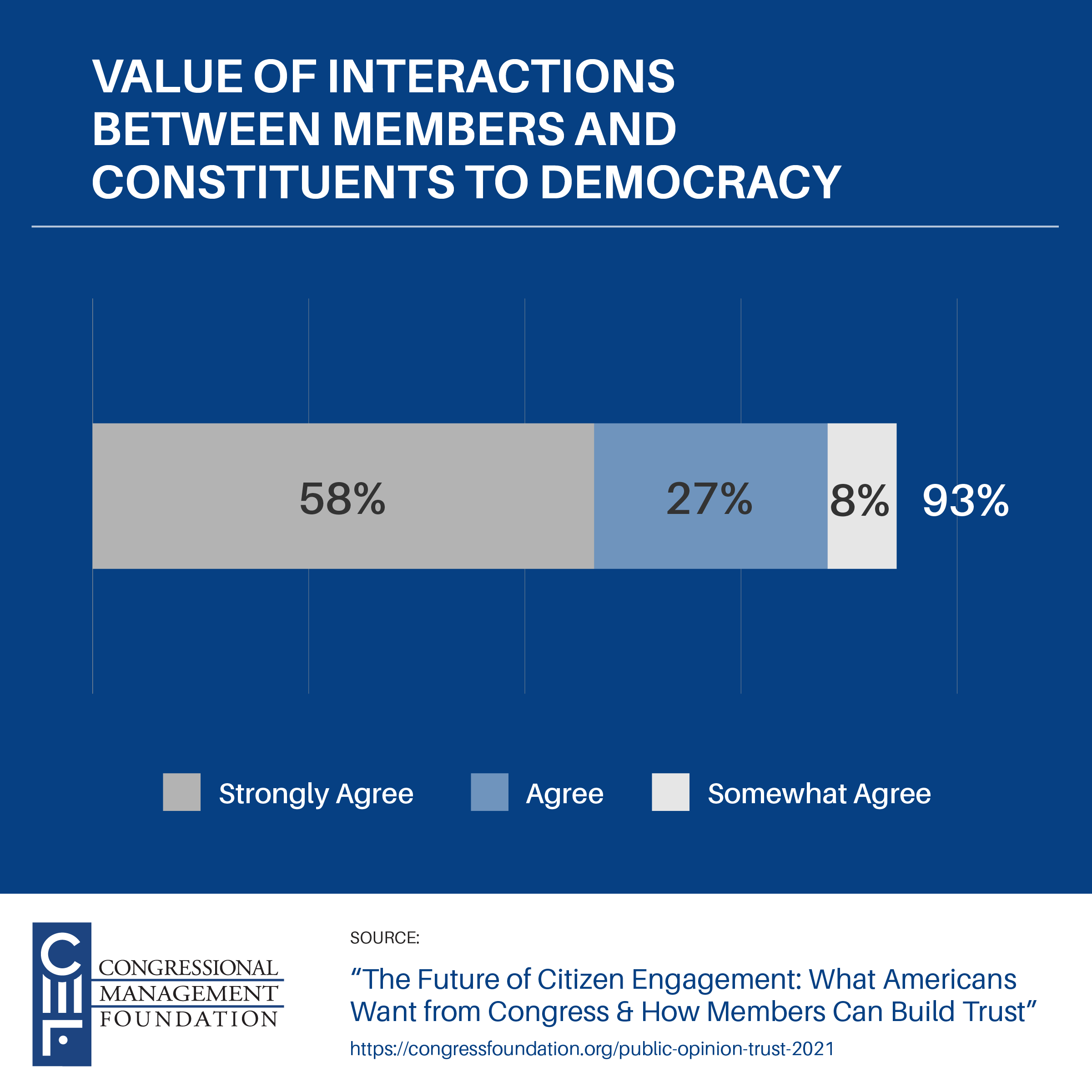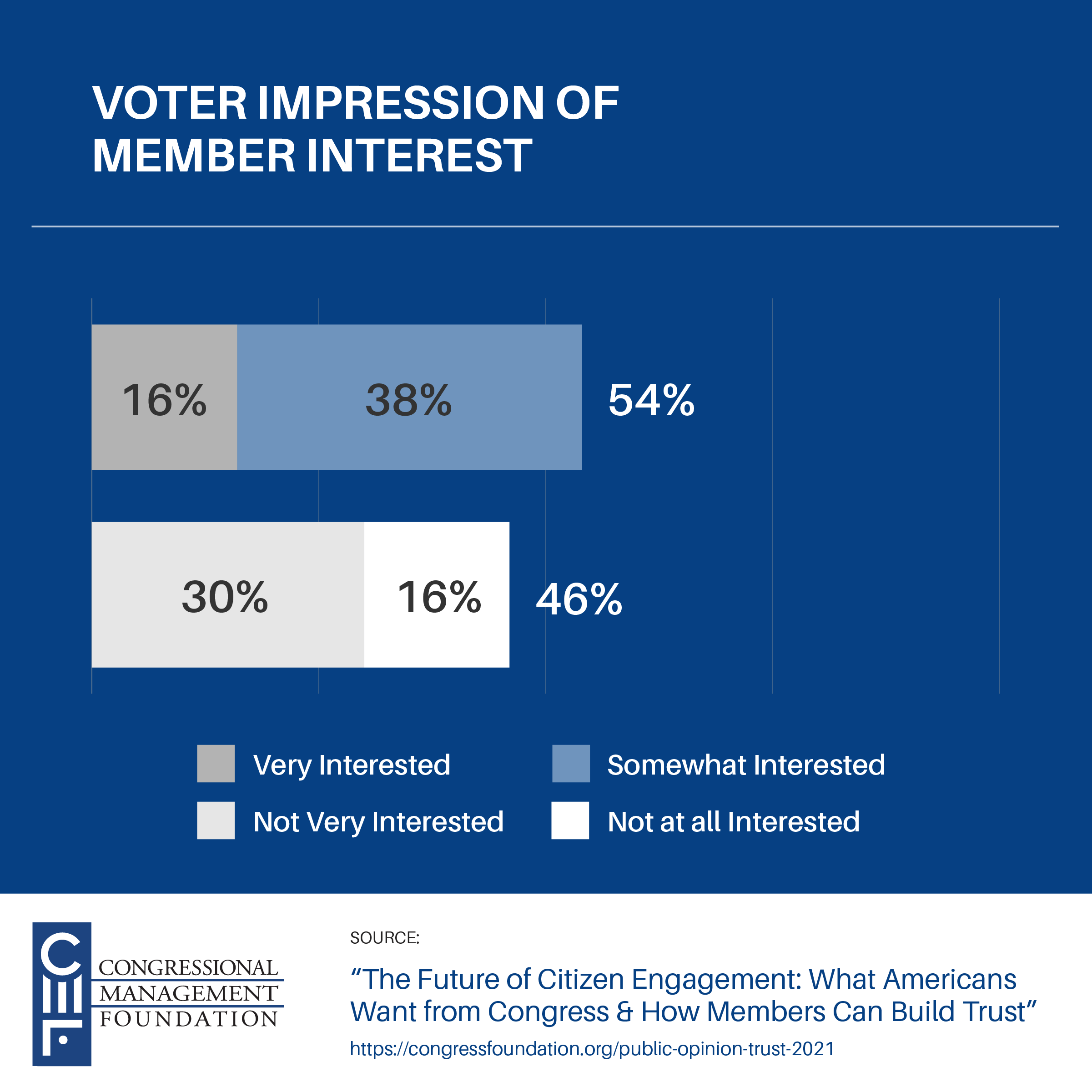This is the second in a series of weekly blog posts summarizing the findings in our latest report, "What Americans Want from Congress & How Members Can Build Trust."
From 2015-2020, CMF collaborated with the Program for Public Consultation at the University of Maryland to ask national samples of registered voters about their interactions with their elected representatives in Congress. We wanted to gain a better understanding of what voters want and expect and what would improve their trust in Congress. One of the key findings from the surveys was that they strongly value the relationship between Members of Congress and those they represent, but feel Members do not share that sentiment.
When we surveyed thousands of registered voters about their elected representatives in government, we asked them about the importance of interactions between citizens and their representatives. Most (93%) agreed that Member-constituent interactions are very valuable for our democracy. Moreover, the majority (58%) strongly agreed.
When we surveyed thousands of registered voters about their elected representatives in government, we asked them about the importance of interactions between citizens and their representatives. Most (93%) agreed that Member-constituent interactions are very valuable for our democracy. Moreover, the majority (58%) strongly agreed.

However, we also found that, while the majority (54%) feel their Congressional representatives are interested in what they have to say, a significant percentage of voters (46%) feel Congress is not interested in their opinion, including an alarming percentage (16%) who feel their elected representative is not at all interested in what they have to say.

Even though we have experienced a decline in voters' approval of congressional performance, many still believe Member-constituent interactions are pivotal for our democracy. The challenge for Congress is to ensure constituents know their voices matter.
Hanzell Carrillo is a senior at Nazareth College majoring in Political Science. He is CMF's Research Assistant intern for Spring 2021.


